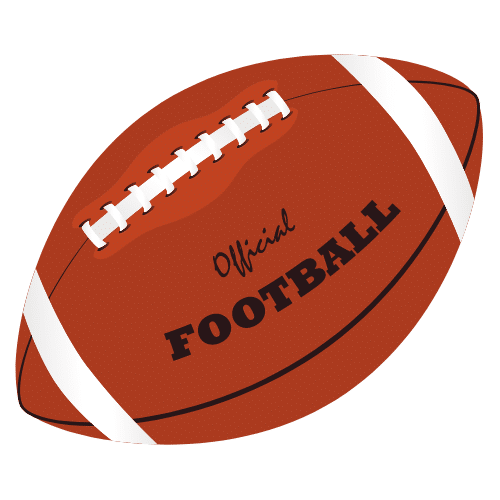FLAG FOOTBALL RULES 2023 Rule 3 - Periods and Timing
SECTION 1. Start of Each Period
Article 1 - First Half
Article 2 - Second Half
Article 3 - Overtime (Tie Breaker)
The tiebreaker system shall be used when a game is tied after 2 halves and the competition mandates a winner needs to be determined.
a. After a 2 minute intermission, the Referee shall toss a coin at midfield as at the beginning of the game. The winner of the coin toss will choose to start each following period on offense or defense. The other team will elect which end of the field will be used.
b. No charged team timeouts shall be granted.
c. The first extra period shall consist of 2 series with each team putting the ball in play by a snap at the middle line for one series of downs (no first down at middle). Should the defense score during the first series, other than on the try, then the extra period is over.
d. Each team retains the ball during its series until it scores (including try downs for 1 or 2 points) or exhausts its series of downs. The ball remains alive after a change of team possession until it is declared dead. The series is then ended even if there is a second change of team possession during that down.
e. If after the first period (with 2 series including tries) the score is still tied, the second and following periods consist of series with each team playing a 1-point try from the 5-yard line. The overtime ends when the score after a period is no longer a tie or the defense scores during the first series of a period.
f. The team scoring the greater number of points during overtime shall be declared the winner.
Article 4 - Tournament Tie Breaker System
If 2 or more teams in a tournament have the same total percentage (win-tie-loss), the following procedure shall decide the order of the teams step by step:
-
- Head to head percentage, if all teams played each other.
- Head to head net point differential, if all teams played each other.
- Head to head points scored, if all teams played each other.
- Total net point differential.
- Total points scored.
- Coin toss. AR 3-1-4-I
SECTION 2. Playing Time
Article 1 - Length of Play and Intermission
Article 2 - Extension of Periods
A period shall be extended until a down has been played which is free from live ball fouls (without loss of down) for which the penalty is accepted. If offsetting fouls occur during a down in which time expires, the down will be repeated.
No period shall end until the ball is dead and the Referee declares the period ended. [S14]
Article 3 - Timing Devices
Article 4 - When Clock Starts
When the game clock has been stopped by rule it shall be started when the ball is next legally snapped.
Exception: The game clock will start at the ready for play when it was only stopped at the Referee’s discretion or when a team has committed a foul to conserve time.
AR 3-2-4-I to IV
Article 5 - When Clock Stops
The game clock shall be stopped when each half ends, for a charged team timeout, for an injury timeout or at the Referee’s discretion.
Within the last 2 minutes of each half the clock shall stop:
- To award a first down, also after a change of team possession.
- To complete a penalty.
- When the ball or the runner goes out of bounds.
- When a pass or fumble (forward or backward) strikes the ground.
- When a teammate of the fumbler touches the ball.
- When a score is made and during and after the following try.
- When a charged timeout is granted.
The game clock shall not run during an extension of a half or overtime.
Article 6 - Running Clock
If the score difference is 30 points or more at the Referee’s notification, the clock will not stop for situations it normally would do so for in the last 2 minutes.
The Referee will inform both teams at the Referee’s notification that the clock will no longer be stopped (running clock) for the remainder of the half.
After the Referee’s notification, the established status of the clock (standard timing or running clock) will not change even if the score difference goes below 30 or reaches 30 or more points. AR 3-2-6-I to II
SECTION 3. Timeouts
Article 1 - How Charged
The Referee shall declare a timeout when the game is suspended for any reason. Each timeout shall be charged to one of the teams or designated as an official timeout. [S3] The Referee shall call an official timeout if discussion of the ruling or other circumstances, take a significant amount of time.
Article 2 - Charged Team Timeouts
Article 3 - Injury Timeout
Article 4 - Length of Timeouts
A charged team timeout shall not exceed 60 seconds. The Referee can shorten any charged timeout by agreement of both teams.
Other timeouts shall be no longer than the Referee deems necessary to fulfill the purpose for which they are declared.
The Referee shall notify both teams when any timeout has expired and 5 seconds later shall declare the ball ready for play. AR 3-3-4-I
Article 5 - Referees Notification
The Referee shall inform all coaches when 2 minutes or less of playing time remain in a half and the ball is or becomes dead next. The game clock shall be stopped for this purpose.
AR 3-3-5-I to II



